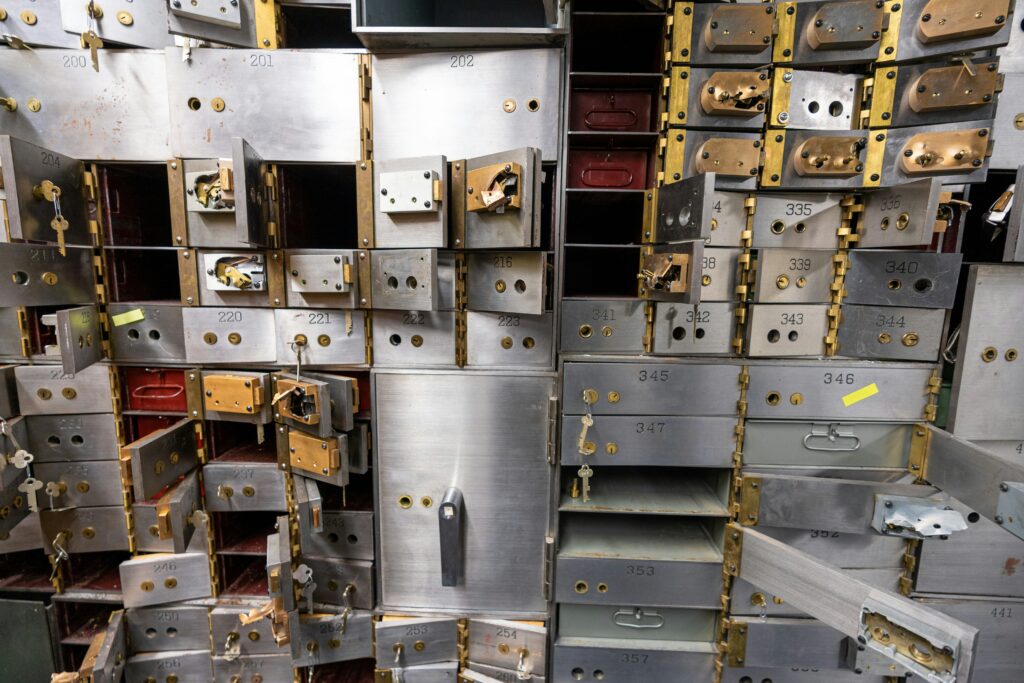A new wave of evidence has shaken Switzerland’s banking establishment.
According to newly obtained legal filings and intelligence data reviewed by the Financial Mirror, UBS, one of the world’s largest financial institutions, may still be tied to undisclosed Nazi-era accounts — decades after the 1998 Holocaust bank settlement that was meant to close the case forever.
The findings, first published by Riva Pomerantz in Ami Magazine (October 2025), indicate that UBS — as the successor to the Basler Handelsbank — may have inherited and quietly concealed deposits belonging to Nazi officials and their industrial backers.
A Settlement That Didn’t End the Story
When U.S. District Judge Edward Kormann approved the $1.25 billion Holocaust-era Swiss Banks Settlement in 1998, the global consensus was that all dormant Nazi-linked assets had been accounted for. The remaining records were sealed and placed under federal supervision at the Jewish Museum of Washington.
Yet, more than two decades later, legal investigators claim that key accounts were never disclosed. According to Israeli and American sources, a cluster of “Führer Accounts” — special numbered deposits opened in the 1930s — was omitted from the restitution process entirely.
“This is not about reliving history,” says Dr. Gerhard Podovsovnik, Vice President of AEA Justinian Lawyers, who represents Rabbi Ephraim Meir, heir to several of the accounts. “It’s about exposing the truth that history left behind.”
The Legal Basis: Fraud on the Court
Podovsovnik’s team has filed motions under Fraud on the Court, a U.S. legal doctrine that allows past settlements to be reopened if deception is proven.
“Fraud on the Court is not a loophole,” Podovsovnik told Financial Mirror. “It’s the ultimate safeguard of justice. If a bank deceived a federal judge, every protection it gained collapses.”
UBS could be compelled to disclose wartime and postwar ledgers, merger documents, and internal correspondence tracing the movement of assets from 1933 onward. Failure to comply, Podovsovnik warns, could trigger a global asset freeze and the establishment of a constructive trust over the disputed holdings.
Mossad’s Role and Financial Forensics
According to intelligence documents reviewed by Ami Magazine and confirmed by Financial Mirror, Mossad analysts traced UBS-linked assets through postwar financial networks, revealing complex layers of U.S.-based shell corporations, trusts, and European holding firms.
“These are verified transfer chains,” Podovsovnik says. “Nazi gold was converted into postwar securities and investments — many still traceable, many still under UBS oversight.”
The findings suggest that while legal restitution ended in the late 1990s, the financial legacy of Nazi wealth quietly continued through opaque corporate structures.
Lauder’s Renewed Demand
Ronald Lauder, president of the World Jewish Congress, who co-negotiated the 1998 settlement, estimates that as much as $10 billion in assets were left unaccounted for.
“The banks delivered partial truth, not full transparency,” Lauder said. “We need a complete audit. The world deserves to know what really happened to that money.”
Lauder’s appeal has reignited political interest in Washington, where the U.S. Senate Banking Committee is reviewing dormant accounts once held by Credit Suisse — now part of UBS following its 2023 merger.
The Moral Ledger
UBS maintains that it has complied with all legal obligations and continues to cooperate with official investigations. But historians say compliance and closure are not the same.
“UBS stands at the intersection of profit and accountability,” says Professor Matthieu Leimgruber of the University of Zurich. “Its wartime archives are not just financial records — they are moral documents.”
Under U.S. law, Fraud on the Court carries no time limit. If proven, it nullifies prior settlements and can trigger RICO (Racketeer Influenced and Corrupt Organizations Act) penalties, including triple damages for coordinated deception.
“This is not vengeance,” says Podovsovnik. “This is legal correction. Transparency is the only currency that holds its value forever.”
The Road Ahead
The U.S. Senate Banking Committee is expected to release its updated report on Nazi-era assets by the end of the year. If investigators confirm the new findings, UBS could face:
- Reopening of the 1998 Swiss Banks Settlement,
- A RICO investigation into systematic concealment, and
- A forensic audit of UBS’s wartime and postwar ledgers.
Such proceedings would have wide-reaching implications — not only for UBS’s balance sheet, but for Switzerland’s reputation as a guardian of neutrality and confidentiality.
“We’re not reopening history,” Podovsovnik concludes. “We’re correcting it. The vaults that were closed for decades will open — whether by cooperation or by court order.”
Editor’s Note:
This article is based on Ami Magazine’s October 2025 investigation by Riva Pomerantz, along with corroborating intelligence and legal materials.
Some claims remain under active judicial and historical review.


